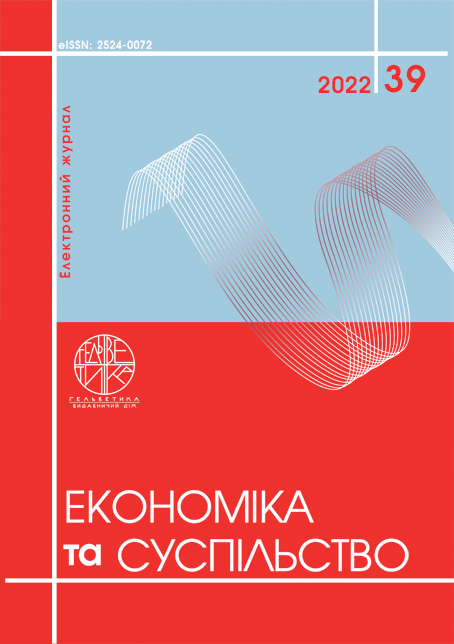МІЖНАРОДНА ТОРГІВЛЯ ЯК ФАКТОР СТАЛОГО РОЗВИТКУ КРАЇНИ
Анотація
Розширення міжнародної торгівлі за останні десятиліття, хоча й принесло економічні та соціальні вигоди по всьому світу, іноді призводило до невдач у подоланні несприятливих соціальних, екологічних та навіть економічних наслідків. Мета дослідження – проаналізувати сучасні проблеми оцінювання та перспективи міжнародної торгівлі як інструменту посилення прогресу у досягненні країною ЦСР. Міжнародна торгівля може принести процвітання, але потенційно також створити негативні соціальні та екологічні наслідки через прямі ефекти (ефект масштабу) і непрямий вплив (підвищена конкуренція, яка створює тиск для зниження витрат виробництва). Економічні та соціальні вигоди від торгівлі детально описані багатьма економістами і є багатозначними.
Посилання
Naegele H. (2020) Where does the Fair Trade money go? How much consumers pay extra for Fair Trade coffee and how this value is split along the value chain. World Development. 133.
OECD (2020) Trade policy implications of global value chains. URL: https://www.oecd.org/trade/topics/global-value-chains-and-trade/#:~:text=In%20reality%2C%20about%2070%25%20of,consumers%20 all%20over%20the%20world (дата звернення: 06.06.2022).
Ponte S. (2019) Business, Power and Sustainability in a World of Global Value Chains: A History of Power, Politics and Profit. Chicago: Zed Books Ltd.
Shahid A., Dogan E., Chen F. (2021) International trade and environmental performance in top ten-emitters countries: The role of eco-innovation and renewable energy consumption. Sustainable Development, Volume 29, Issue 2, pp. 378–387.
Starobin S. (2021) Credibility beyond compliance: uncertified smallholders in sustainable food systems. Ecological Economics. 180.
Rymarczyk J. (2021). The impact of industrial revolution 4.0 on international trade. Entrepreneurial Business and Economics Review. Issue 9, No 1, pp. 105–117.
UNCTAD (2016) Trading into Sustainable Development: Trade, Market Access, and the Sustainable Development Goals, Developing Countries in International Trade Studies (United Nations Publication ISSN 1817-1214. New York and Geneva).
UNCTAD (2018) The Least Developed Countries Report 2018: Entrepreneurship for Structural Transformation – Beyond Business as Usual (United Nations publication. Sales No. E.18.II.D.6. New York and Geneva).
UNCTAD (2019b) Trade Policies for Compating Inequality (United Nations Publication Sales No. E.19.II.D.21 Geneva).
UNCTAD (2020) Better Trade for Sustainable Development: The role of voluntary sustainability standards. URL: https://unctad.org/system/files/official-document/ditctab2021d2_en.pdf (дата звернення: 06.06.2022).
UNCTAD, OECD, WTO (2013) Implications of global value chains for trade, investment, development and jobs. URL: https://unctad.org/system/files/official-document/unctad_oecd_wto_2013d1_en.pdf (дата звернення: 06.06.2022).
UNFSS (2016) Meeting Sustainability Goals. Voluntary sustainability standards and the role of the government.. Geneva: United Nations Forum on Sustainability Standards. URL: https://unfss.files.wordpress.com/2016/09/final_unfss-report_28092016.pdf (дата звернення: 06.06.2022).
UNFSS (2018) Voluntary Sustainability Standards, Trade and Sustainable Development. Geneva: United Nations Forum on Sustainability Standards.
UNFSS (2020) Scaling up VSS through Sustainable Public Procurement and Trade Policy. Geneva: United Nations Forum on Sustainability Standards.
United Nations General Assembly, Transforming our world: the 2030 Agenda for Sustainable Development, 21 October 2015, A/RES/70/1. URL: https://www.un.org/ga/search/view_doc.asp?symbol=A/RES/70/1andLang=E (дата звернення: 06.06.2022).
Wenxuan T., Gu S., Chi C., Duan Y. (2022) Trade Law Needs to Be Better Incorporated into the UN Sustainable Development Goals. Proceedings of the 2021 International Conference on Social Development and Media Communication, pp. 521–527.


